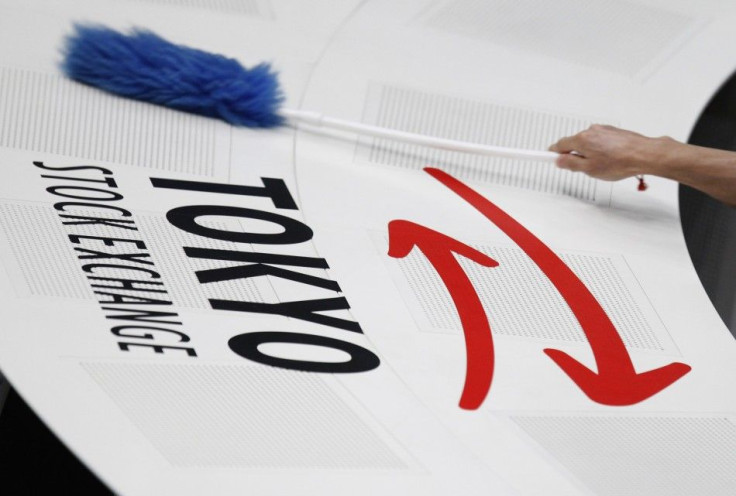Weekly Roundup: Asian Markets Fall On Weak China Data, Disappointing Fed Stimulus Measures

Most Asian markets fell this week as investors were worried after the U.S. Federal Reserve refused to announce a further round of quantitative easing and the HSBC Flash Purchasing Managers Index (PMI) indicated that China's manufacturing activity was faltering.
China's Shanghai Composite Index fell 1.9 percent and closed at 2260.88. Hong Kong's Hang Seng Index declined 1.2 percent and closed at 18995.13. South Korea's Kospi Index was down 0.6 percent and closed at 1847.39.
A critical factor that dragged markets downward was the report that China's manufacturing activity continued to contract for the seventh straight month, according to the preliminary HSBC Flash PMI report released Thursday. The preliminary reading of the PMI fell to 48.1 in June, compared to 48.4 in May.
India's BSE Sensex gained 0.13 percent and closed at 16972.51. The Indian rupee touched a record low of 57.32 against the dollar. In its mid-quarter monetary policy review, the Reserve Bank of India (RBI) kept the repo rate unchanged. The RBI indicated that a rate cut in the present situation could stoke inflationary pressures rather than support growth.
Japan's Nikkei 225 Stock Average climbed 1.3 percent and closed at 8469.32. As the Japanese yen weakened against the dollar, exporters gained and this lifted the market.
The market started the week on a positive note as investors were relieved after the pro-bailout parties won the elections in Greece Sunday. But excitement over the Greek election outcome proved short-lived. Investors were worried that the formation of the pro-austerity measures government alone would not be sufficient to restore economic and financial stability to Greece.
The outcome of the Greek elections failed to offer much relief for riskier euro sovereigns in general and Spanish bonds in particular. The 10-year Spanish government bond yields hit fresh euro-era high, crossing 7 percent.
Investor sentiment was down as the U.S. Fed opted to extend its Maturity Extension Program (MEP), also called Operation Twist, for another six months, but there was no new large scale asset purchase program (QE3). The MEP was originally due to finish at the end of this month, but the Fed announced Wednesday it would keep it going until the end of this year.
The Federal Open Market Committee (FOMC) also reduced its economic growth forecasts quite significantly to between 1.9 percent and 2.4 percent this year, down from an April projection of between 2.4 percent and 2.9 percent.
The fall in the Markit Flash U.S. Manufacturing PMI survey for June to 52.9 from 54.0 in May added to the market's disappointment.
Adding to investors' concerns, Moody's cut the ratings of 15 global banks. The ratings agency stated in a report that these banks had significant exposure to volatility and risked outsize losses inherent in capital markets activities.
Major losers: Shares of China Coal Energy Co. fell 3.5 percent. Shares of CNOOC Ltd declined 3.2 percent and shares of Bank of Communications Co. slumped 1.9 percent.
Week Ahead: The euro zone crisis continues to be a critical drag on global economic growth. While Germany is contracting marginally, steep downturns are evident in Spain and Italy, which are faced with increasing borrowing costs. Market players are looking for clarity on the coordinated efforts by central banks to announce monetary easing measures. If there is no such announcement, markets are expected to remain bearish.
© Copyright IBTimes 2025. All rights reserved.





















